News Blog
Latest News From Our Volunteers in Nepal
VOLUNTEER COMMUNITY CARE CLINICS IN NEPAL
Nepal remains one of the poorest countries in the world and has been plagued with political unrest and military conflict for the past decade. In 2015, a pair of major earthquakes devastated this small and fragile country.
Since 2008, the Acupuncture Relief Project has provided over 300,000 treatments to patients living in rural villages outside of Kathmandu Nepal. Our efforts include the treatment of patients living without access to modern medical care as well as people suffering from extreme poverty, substance abuse and social disfranchisement.
Common conditions include musculoskeletal pain, digestive pain, hypertension, diabetes, stroke rehabilitation, uterine prolapse, asthma, and recovery from tuberculosis treatment, typhoid fever, and surgery.
FEATURED CASE STUDIES
Rheumatoid Arthritis +

35-year-old female presents with multiple bilateral joint pain beginning 18 months previously and had received a diagnosis of…
Autism Spectrum Disorder +

20-year-old male patient presents with decreased mental capacity, which his mother states has been present since birth. He…
Spinal Trauma Sequelae with Osteoarthritis of Right Knee +
60-year-old female presents with spinal trauma sequela consisting of constant mid- to high grade pain and restricted flexion…
Chronic Vomiting +

80-year-old male presents with vomiting 20 minutes after each meal for 2 years. At the time of initial…
COMPASSION CONNECT : DOCUMENTARY SERIES

Episode 1
Rural Primary Care
In the aftermath of the 2015 Gorkha Earthquake, this episode explores the challenges of providing basic medical access for people living in rural areas.

Episode 2
Integrated Medicine
Acupuncture Relief Project tackles complicated medical cases through accurate assessment and the cooperation of both governmental and non-governmental agencies.

Episode 3
Working With The Government
Cooperation with the local government yields a unique opportunities to establish a new integrated medicine outpost in Bajra Barahi, Makawanpur, Nepal.

Episode 4
Case Management
Complicated medical cases require extraordinary effort. This episode follows 4-year-old Sushmita in her battle with tuberculosis.

Episode 5
Sober Recovery
Drug and alcohol abuse is a constant issue in both rural and urban areas of Nepal. Local customs and few treatment facilities prove difficult obstacles.

Episode 6
The Interpreters
Interpreters help make a critical connection between patients and practitioners. This episode explores the people that make our medicine possible and what it takes to do the job.

Episode 7
Future Doctors of Nepal
This episode looks at the people and the process of creating a new generation of Nepali rural health providers.

Compassion Connects
2012 Pilot Episode
In this 2011, documentary, Film-maker Tristan Stoch successfully illustrates many of the complexities of providing primary medical care in a third world environment.
From Our Blog
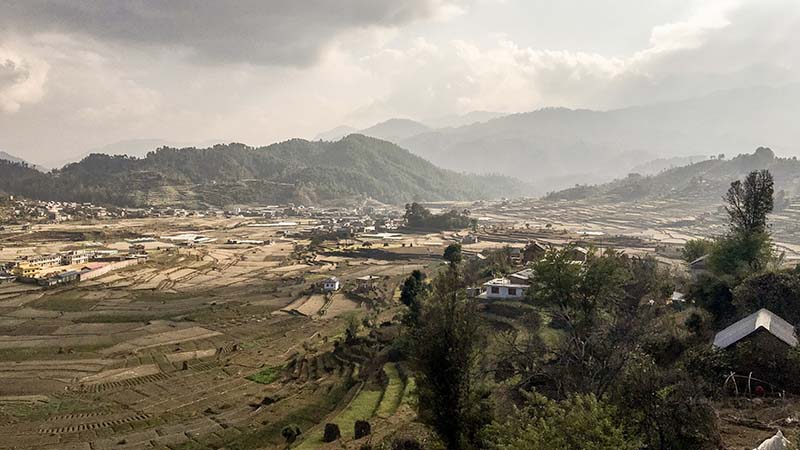
- Details
- By Kallie Harrison

After living in Bajrabahari at the Acupuncture Relief Project headquarters for 3-1/2 months it has become my home. As I think about my “other home” in Portland Oregon it seems like a lifetime away. I never thought I would get use to living here but now I cannot imagine anything different. Elissa, Andrew, Tsering, Bibek, Didi, Chandra, Litle Bimala, Bimala, Gunaraj, Milan, Amrita, Sushila, Sunmaya, Anupa and everyone else all have become my Nepali family. The thought of leaving them in three weeks pulls deeply at my heart. But it is not only them that I will be saying goodbye too. After seeing many of my patients 2-3 times a week for this long has created a bond that I hope to never forget.
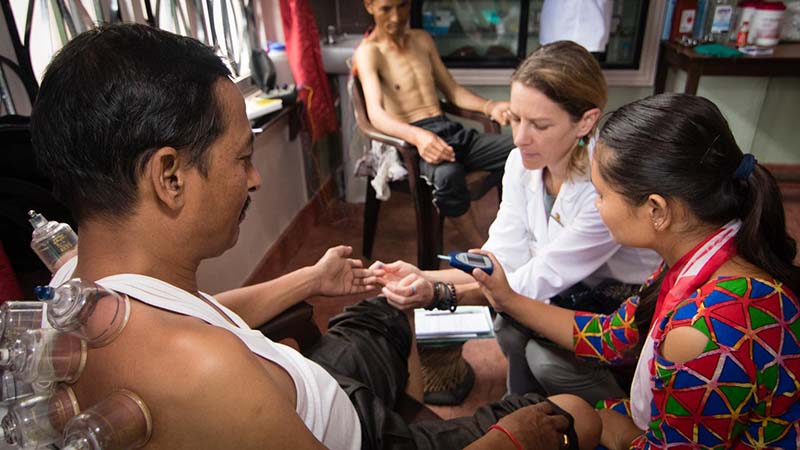
In the beginning of my clinic camp, the patients were wary of us as "the new doctors”. However, once the patient/practitioner relationship forms, they start to tell you more and more about why they are here, that story turns into more stories of their life, A bond starts to form. Everyday in clinic I look forward to our "Namaste" exchange and to hear the continued story. My favorite days are when they tell me about their families and how many animals they have. Two of my patients have continued to ask me to visit their homes on Saturdays. This is not an easy task, as I need to find an interpreter who will take me on their day off and also one who knows where they live.
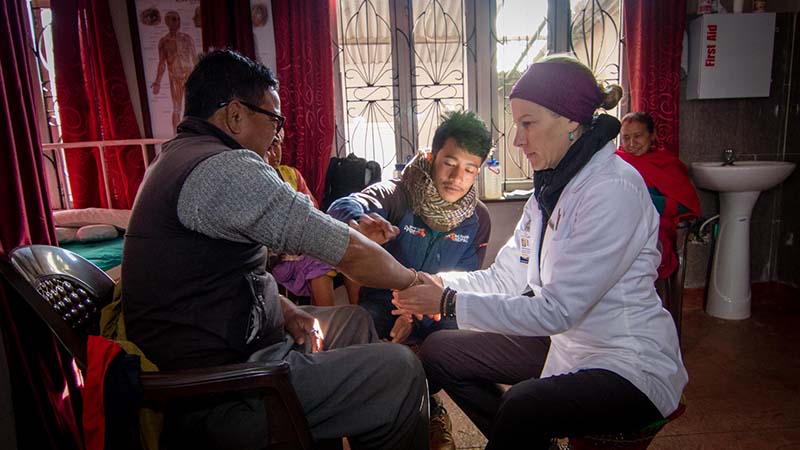
This past Saturday, Gunaraj (a senior interpreter) agreed to take me on his motorcycle and visit two of my patients that live in the same village about 15 minutes drive from the clinic. Once we arrived at the first house I was instantly reminded that I should have not had lunch before we left. Immediately my patient was handing me two full plates of food and told me to eat. One plate of Dal Baht another place of rice pudding and fried doe, both piled high. Once Gunarj and I ate, she sat down and held my hand. We talked about her family and whom she lives with: husband, son, daughter in law and two grandsons. We talked about her pain and also me leaving. She asked me twice to take her back to America with me. She said she would love to go to America and take care of me. We both laughed and smiled at each other.
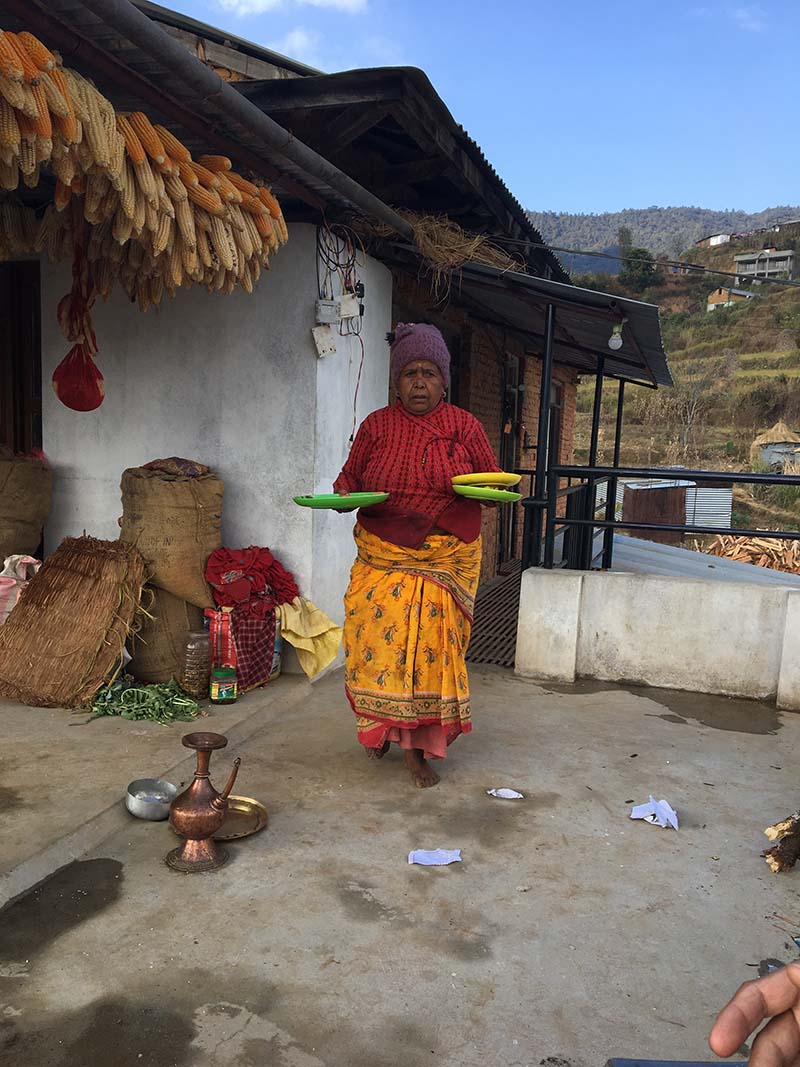
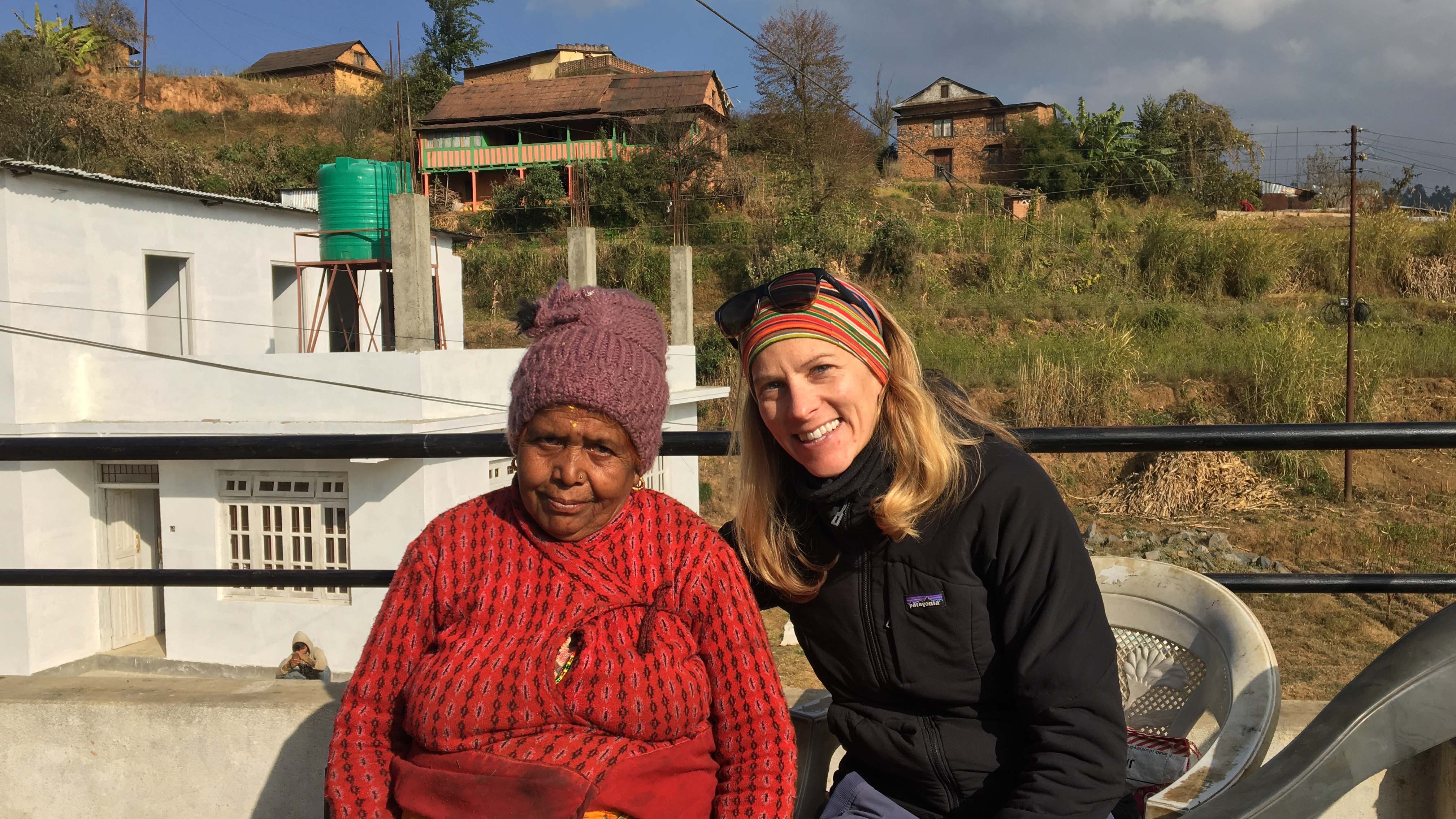
The second house was up the hill from where we were. I jumped on back of the motorcycle and held on tight, as it was a bumpy and steep road. As soon as we arrived, my patient came out and said she had been watching the road all day, as she was excited for my arrival. She invited us in and told us to sit. She instantly went to her stove and started warming up friend doe patties and a potato curry. Her mother, whom she lives with joined us as well. I began eating another big plate of food plus she gave us sweet tea with milk. We talked about her home and her animals. She asked questions about my family, if I had kids and if I was married. She was disappointed on my answers but said I am still beautiful and young and have time. She explained how it use to take her two hours to walk to the clinic and now she can get there in one hour because her knee’s are less painful. She told me how sad she was for me to go and disappointed that she cannot call me because we do not speak the same language. We took pictures, held hands and talked about her garden.
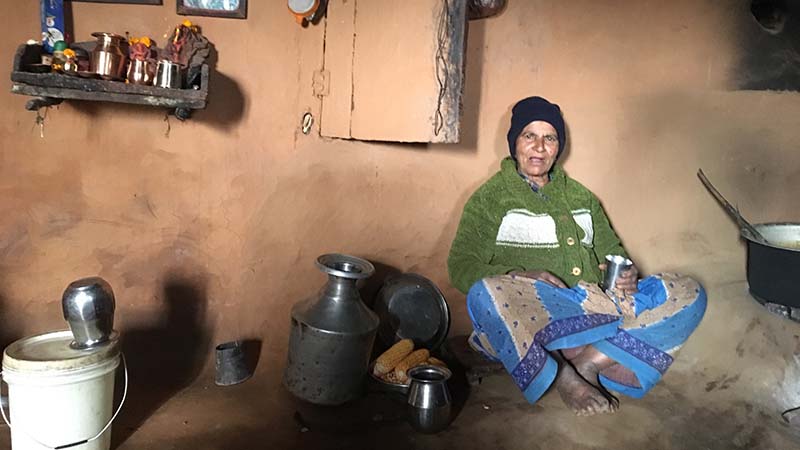
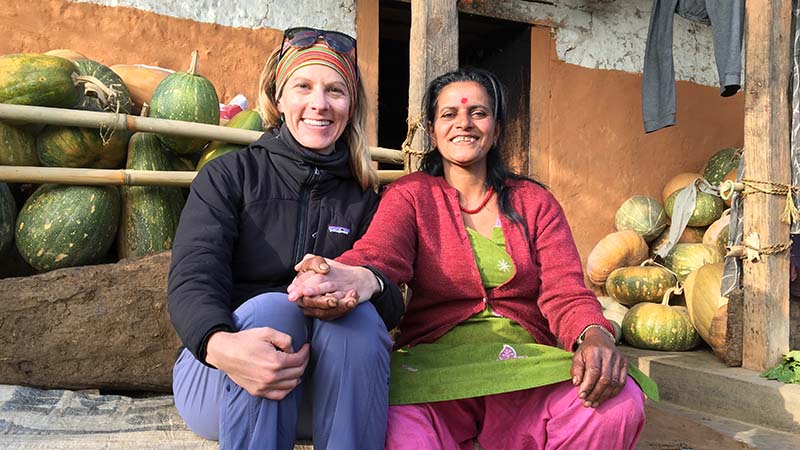
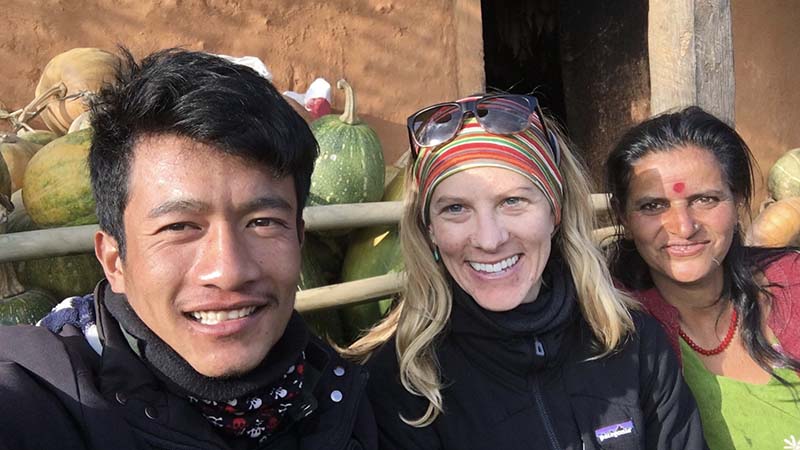
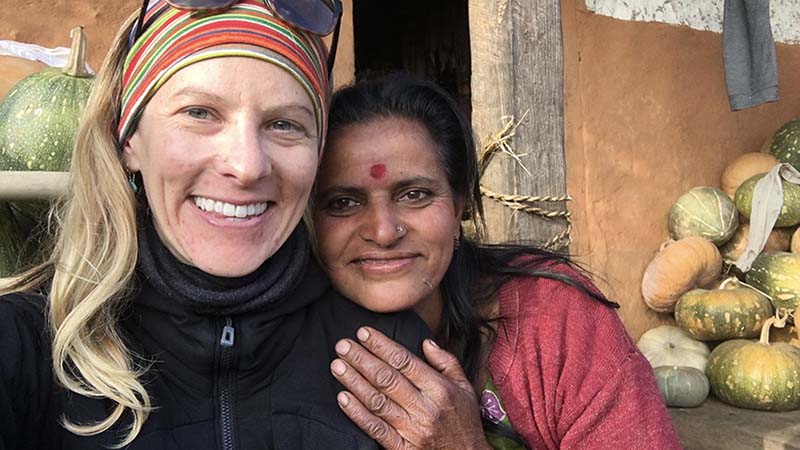
Reflecting on this day, I am overwhelmed with so much Love for my patients and my experience in Nepal. These four months have forever changed my life and I hope to come back again very soon. ---Warmest Namaste, Kallie Harrison RN, LAc, McAOM
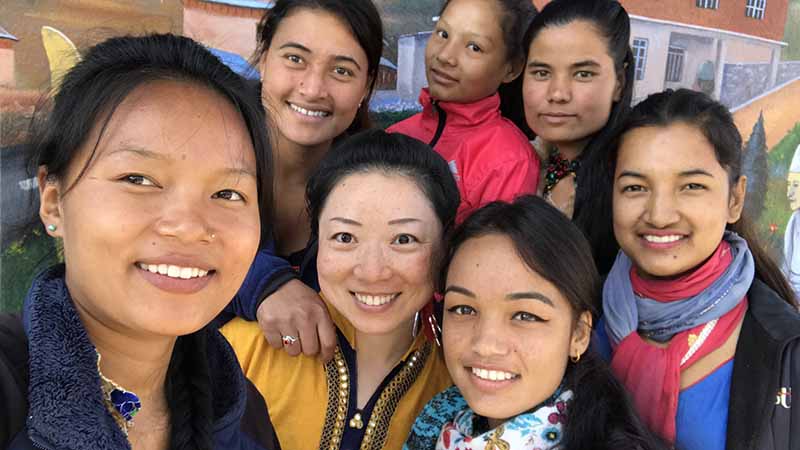
- Details
- By Yun Xiao
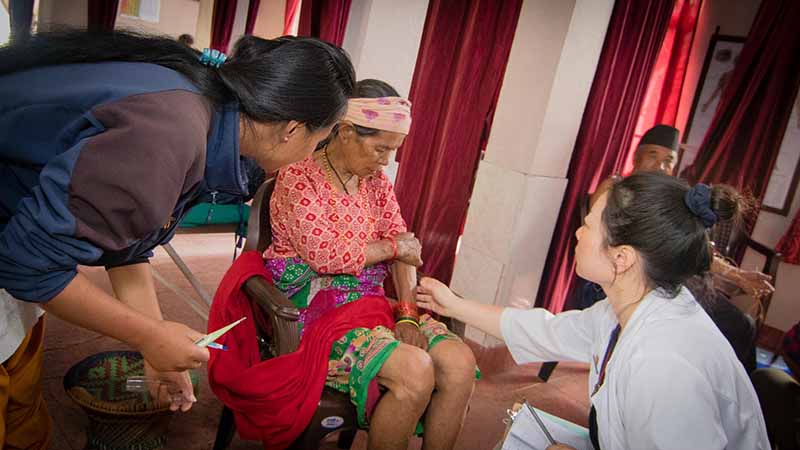

Sitting in front a window at the Roadhouse in Thamel, realizing I’ll be leaving Nepal in less than 8 hours, feel like unreal. There is a strong voice inside me saying: I don’t want to go! These two months was like a dream, the kind of dream I wish I could encounter again and again. This is a country I ended up falling in love with regardless of its poor infrastructure and poverty. Before I came, I thought it would be just like any other trip I had, only with longer time and a bunch of volunteer work. I never thought this could be a trip that changed so much of me that my life will never be the same. This is a place I call it “home”, with many faces that I’ll miss in the future. This is a place I want to be a part of, not just as a tourist.
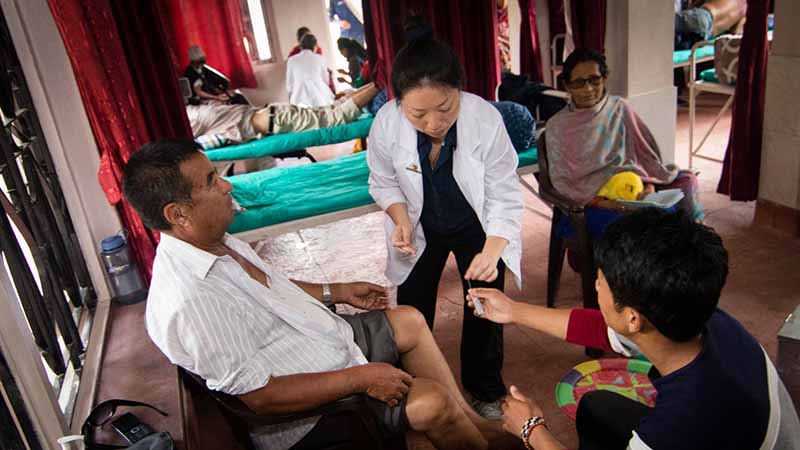
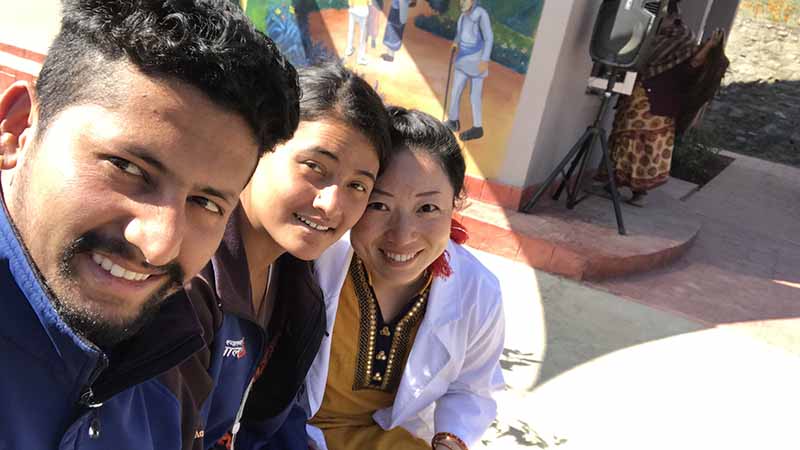
Here a cup of tea becomes much tastier because of the companionship. The meals are yummier with the cheerful spirit that our cook Bibek put into it. The stress is none as I’m always surrounded by those beautiful souls who made every moment delightful. The time here is just a rough guideline when you have nothing to do but enjoy the conversations while bathing under the sunshine. It was a great honor to be a medical provider for the people here, knowing that some of them walked hours to the clinic for me to carry out a treatment. Those moments that I was sitting on the stairways to have my hair braided by my lovely Ambrita will never fade. Sushila’s handcrafts, Bimala’s angel-like voice are the best things in the world. Those smiles, tears and hugs from our young interpreters touched me deeply every day. They say “Don’t go. Please don’t go.” If I have the choice, I’ll say “no, I won’t go” --- Yun Xiao
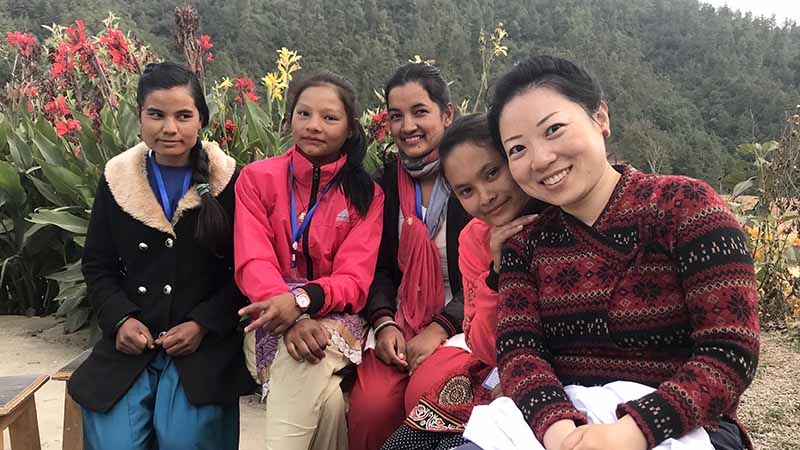
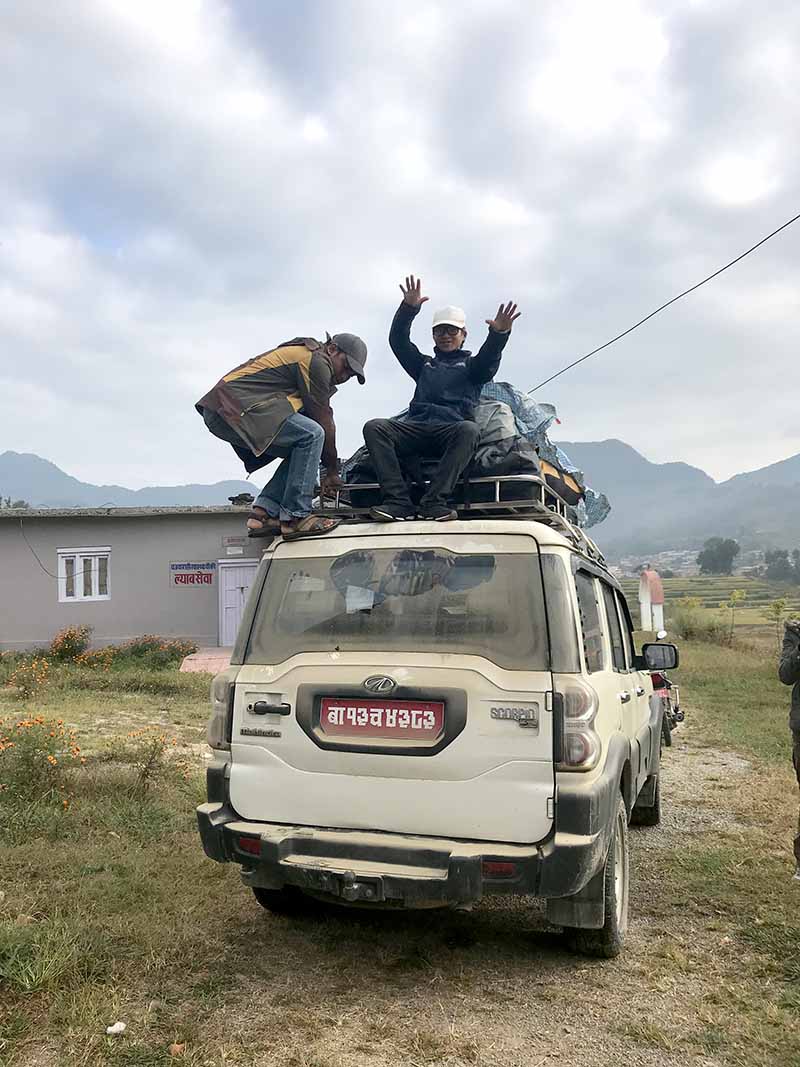
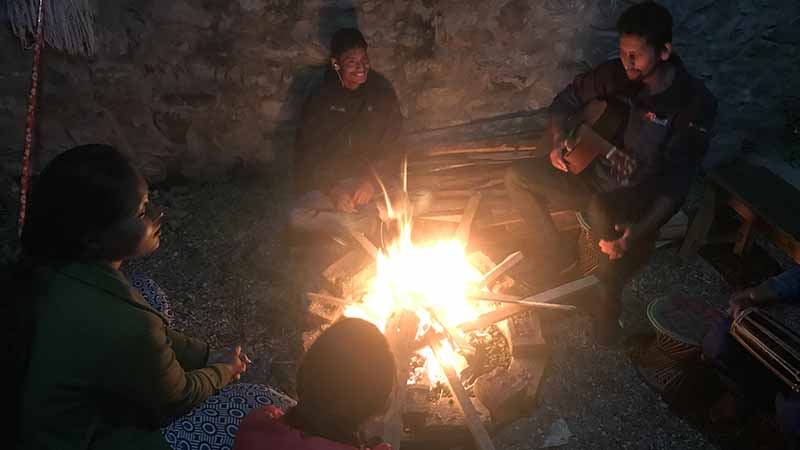
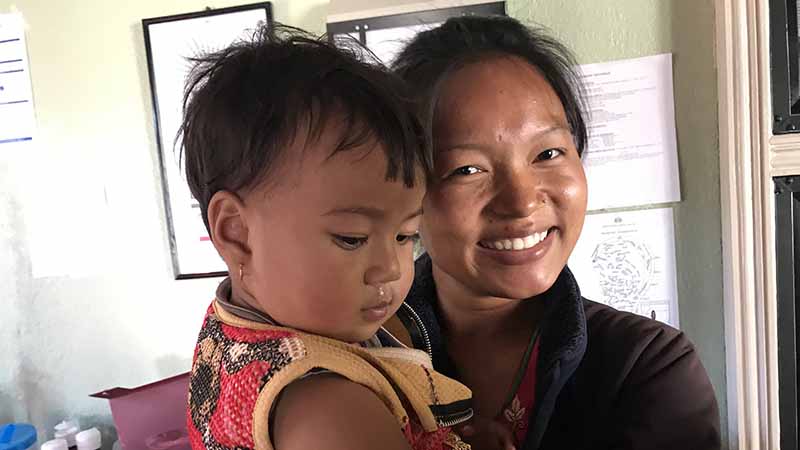
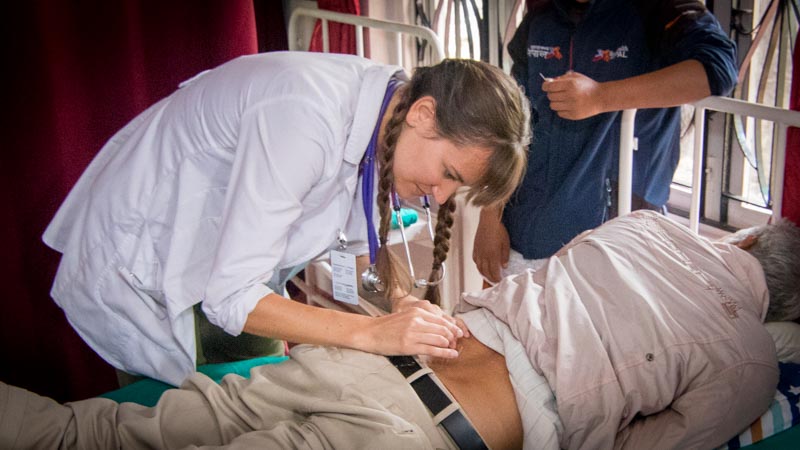
- Details
- By Melissa Laws
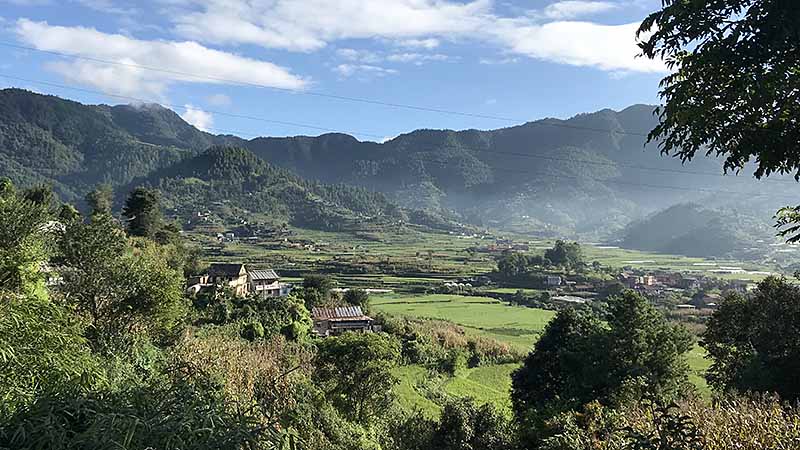
It has been a month now I have been living in Bajrabarahi, Nepal and I am in a nice groove. I am consistently seeing around 15-20 patients a day in the clinic and feel slightly less panicked every time I get a new one. Practicing Chinese Medicine here is very different than practicing in Portland. I consistently see elderly patients who have never been to a hospital or seen many doctors in their whole lives. It is an awesome responsibility to have their care in my hands, and I feel the weight of it each day.

Typically, the patients will walk into my station in the clinic, hands pressed together, with their head bowed and offer a “Namaste”. This greeting is always offered with a smile, no matter how much pain they are in. Then we sit and talk for a few minutes while I get a little history of their complaint. I will ask a few questions, and then do some exams. I have learned quickly (through the tutelage of my Team Leads), that physical exams are priceless and give you the best clues into figuring out a diagnosis, and later helping each patient. A month into clinic, I am beginning to feel more confident in my exam skills. The difference of practicing in the clinic here is that we aren’t just giving acupuncture treatments to our patients, we are often making referrals and coordinating with the health post to make sure each patient gets the care they need. And that is not always acupuncture. It’s exciting to widen the scope of my practice and build new skills each day. I have learned that I love cleaning wounds! I didn’t know that about myself before, but I do! When its rainy, patients will often come in with leech bites on their feet and legs, which I get to clean. And on a rare occasion, someone will come in with a laceration on their hand from their scythes, with which they use to work. I genuinely enjoy cleaning and bandaging each one. I may have never learned this about myself had I not come to Nepal. The other practitioners have learned that I enjoy this task and will often invite me over to look at their wound care, too. Self discovery comes in all forms here in Nepal!
Here I am with one of my patients, I wont post any pictures of wounds...Don’t worry
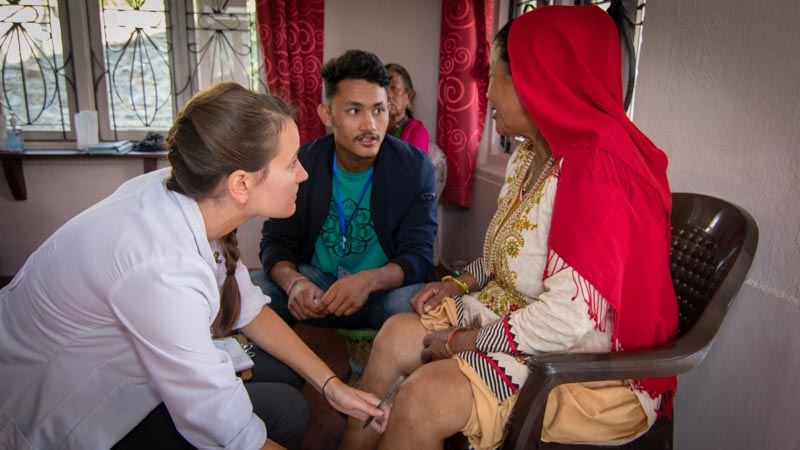
None of this would be possible without our amazing interpreters, who are rockstars. The interpreters are between the ages of 16-22ish and local to the area. They are the reason I get to sit with my patients and connect with them in a meaningful way. That is the difference between a translator and an interpreter. Our interpreters try to convey our tone, our affect, and really bridge the gap between myself and my patients. It can be an exhausting task, and the interpreters always handle it with such grace. Especially for being so young. If we have any down time in the clinic I love to learn about their lives, their culture and if they are up for it, give them a treatment.
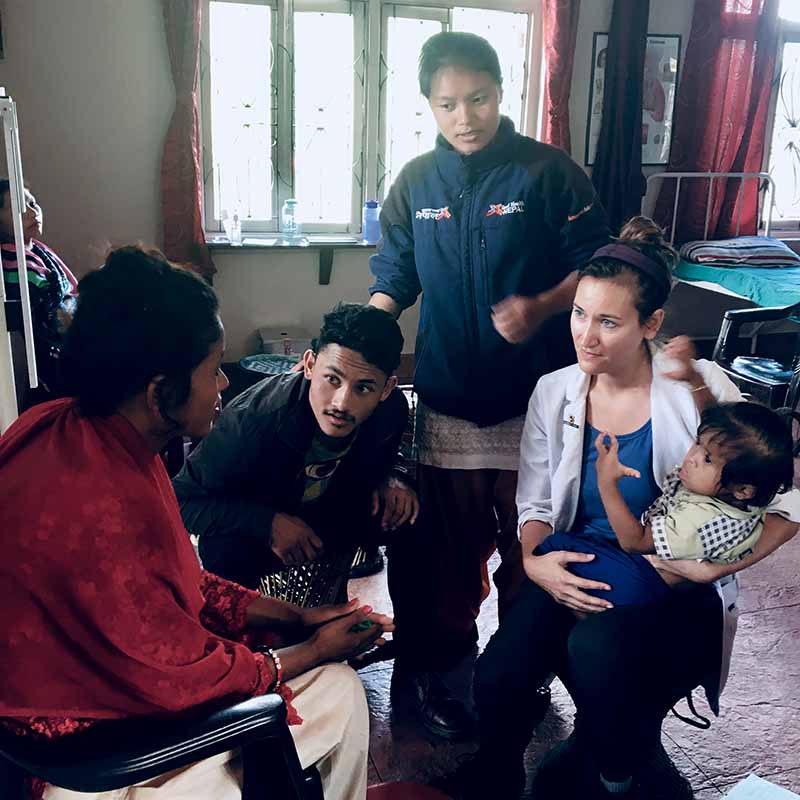
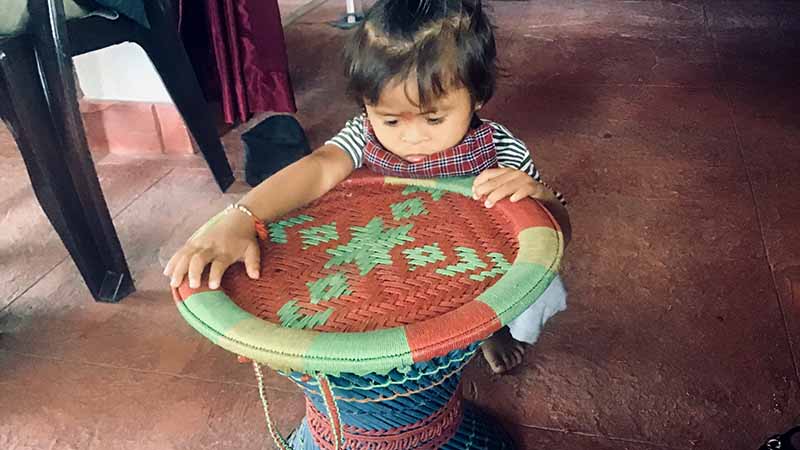
I want to share a few photos a couple of my favorite patients. I love them all, but a few really stand out. Below is Abhi, who is two years old and was brought in by his mother. On our initial exam, he wouldn’t make eye contact with me or respond to me. As our treatments continued, I learned that he loved to have his belly needled and tickled. To see this kiddo smile and laugh while getting acupuncture was amazing!
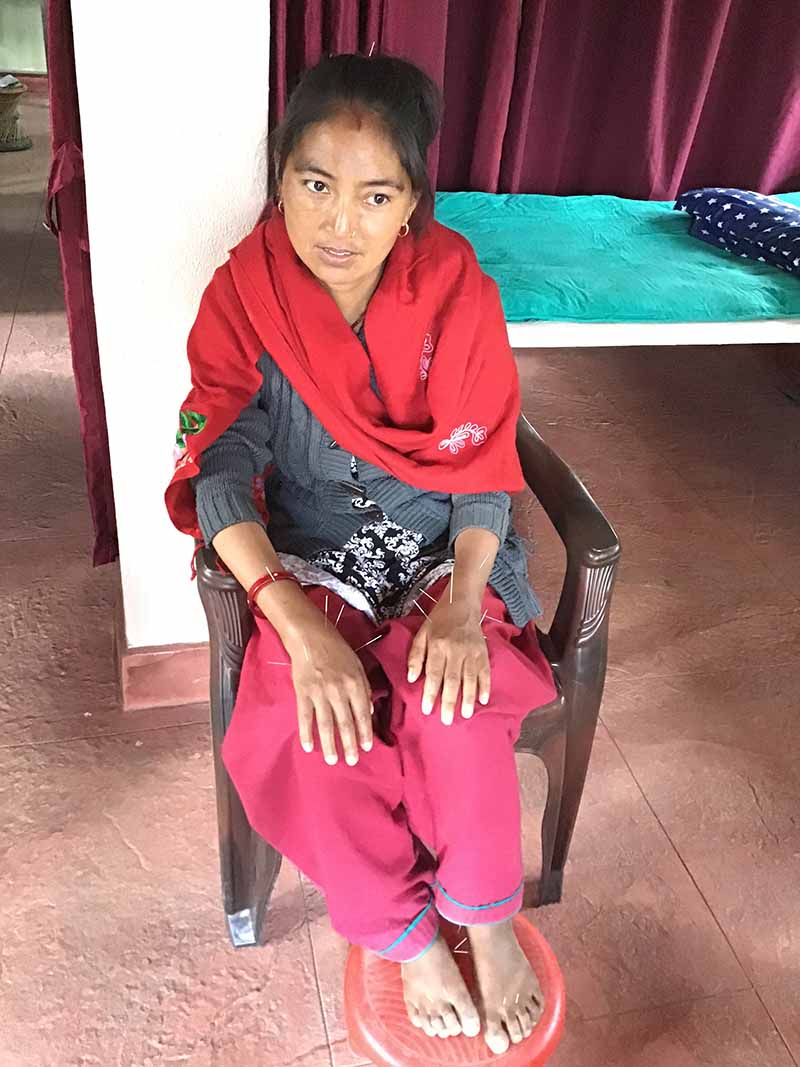
Next is Samita, she is 30 years old and living with Rhuemathoid Arthritis. We have been working hard at keeping her pain down and keeping her joints as healthy and possible. She is very shy and very kind. After a month of working together three times a week, she is beginning to open up to me. Now her face lights up when she sees me and if I’m lucky, she will bring her 5 month old baby boy and let me hold him while she retains the needles.
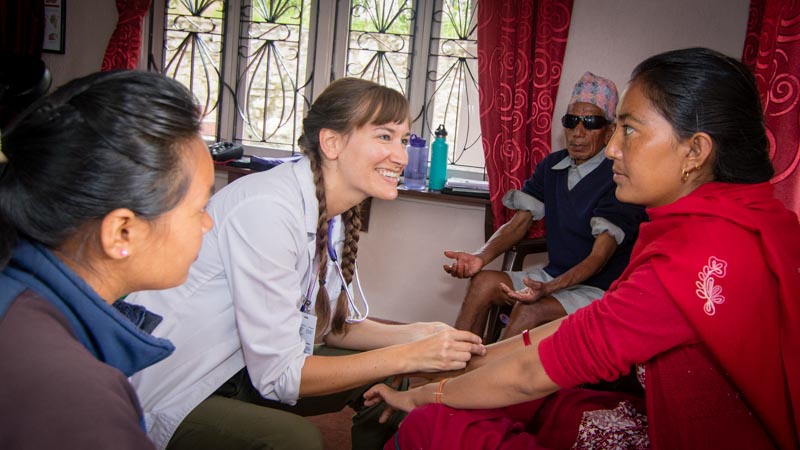
Though the work can be heart wrenching at times, and exhausting at others, I find that I am happier and feel more restored than I think I ever have. When I am not in the clinic, I read books and rest, eat delicious Nepali food and share stories with my fellow team. We all laugh a lot, share, and support one another which is so wonderful. We all bond over our morning cup of coffee and what goodies we can find at the market. I am so grateful to get to be here in this beautiful valley, treating patients in such a supportive environment. --- Melissa Laws
Our Mission
Acupuncture Relief Project, Inc. is a volunteer-based, 501(c)3 non-profit organization (Tax ID: 26-3335265). Our mission is to provide free medical support to those affected by poverty, conflict or disaster while offering an educationally meaningful experience to influence the professional development and personal growth of compassionate medical practitioners.
